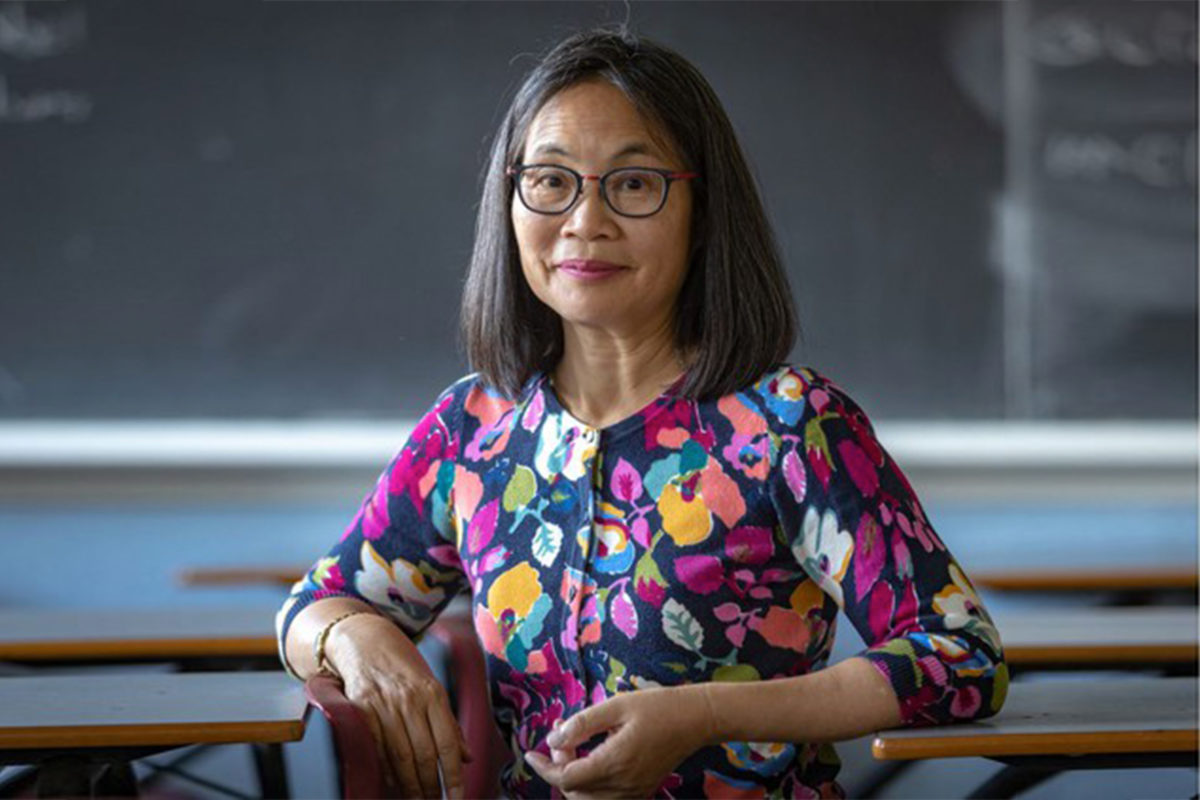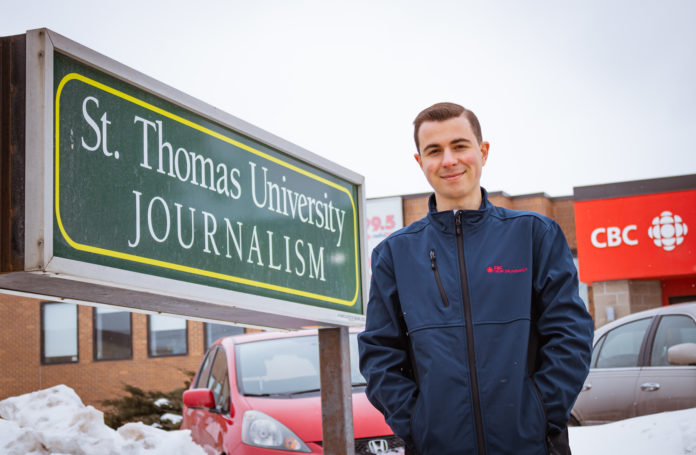Alexandre Silberman, a fourth-year St. Thomas University journalism student, was one of 12 students in Canada to receive the Joan Donaldson CBC News Scholarship for 2021. The last STU student who earned this recognition was Julia Whalen in 2013.
Silberman was at his desk at CBC News Fredericton, in the middle of a work-related call, when he saw that a number from Toronto was calling him. He didn’t answer immediately, instead, he listened to the voicemail. It was the coordinator for the Donaldson scholarship, who told Silberman to call him back.
“I walked away to a quiet part of the newsroom,” he said. “I called him and he said, ‘would you like to be a Donaldson scholar?’”
The CBC gives the Donaldson scholarship once a year to less than 15 students from 12 different institutions across Canada and both undergraduate and graduate students can apply.
Jan Wong, a retired associate professor of journalism at STU, taught Silberman. She said that the competition between undergraduates and masters was the cause of the eight-year gap between Whalen and Silberman.
“I felt discouraged to even nominate students to the scholarship. I thought it was pointless because they were competing with people with masters degrees and years ahead of experience,” she said.
Jeffrey Carleton, STU’s associate vice-president of communications, said this only shows how impressive Silberman’s diligence is.
“It’s a feather in the cap of the journalism program,” he said.
Carleton said there will be a photo and profile of Silberman in next year’s STU viewbook.
Silberman said he put a lot of effort into the Donaldson scholarship. He had to submit his resume and samples of his work internally at STU and then a professor nominated him. After that, he had to submit an application, a cover letter, his portfolio and a critique of CBC’s coverage of a single story for a 36-hour period.
He chose to analyze the coverage of the declaration of Biden as the winner of the United States presidential election.
“For 36 hours, I watched their coverage on television, tuned in to the radio and listened to all the shows and podcasts,” said Silberman.

Wong credits Silberman’s success to his detail-oriented mindset.
“He listens, he does what he is supposed to do and reports back so he can get advice and actually implement it,” she said.
She said Silberman has a go-getter attitude and is proactive when it comes to work. He doesn’t waste time, he follows the news and contacts people quickly, said Wong.
“Journalism is a tough field, but I know he is going to be successful,” she said.
Carleton also praised Silberman for his skills as a journalist. When Silberman was in his first year, he interviewed Carleton for an article about the university’s enrolment. Carleton’s first impression of Silberman was that he had a lot of potential.
“I remember commenting afterwards to a journalism professor that he was very serious,” said Carleton. “He was very diligent, he did his research before he spoke to me and [I said] that he certainly was going to be a student to watch in the coming years.”
Silberman said he’s taken time to reflect on his accomplishment, what it means to him and the hard work he’s put into his career as a journalist.
When he first had his interview with CBC News Fredericton, he said he sat in the chairs in the lobby and was so stressed out, he didn’t think he’d be able to speak calmly.
“My heart was racing,” said Silberman.
He said during his summer internship at CBC, he’d often be the first to arrive and the last to leave the newsroom.
Silberman likes that his job allows him to move around and work in different areas. He started as an intern reporter, then he moved to prepping radio interviews and television shows.
“There’s no typical day,” he said.
“That’s the nature of working in journalism, you never know what will happen.”

